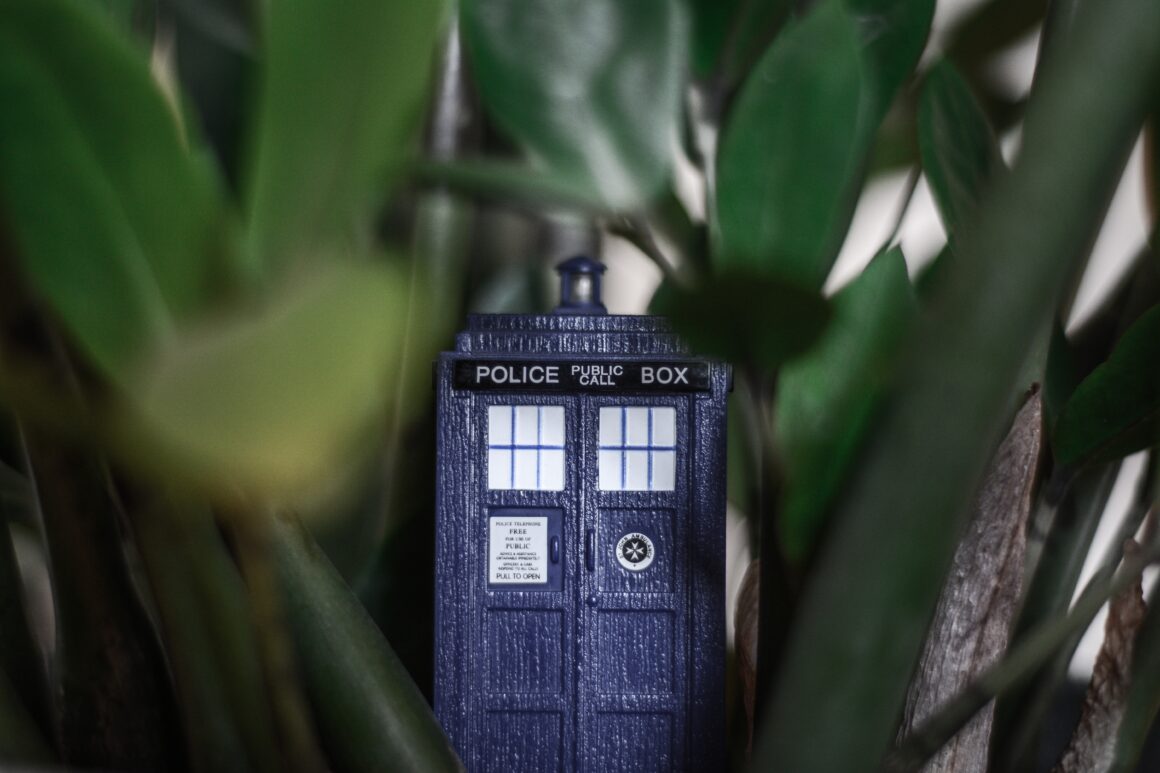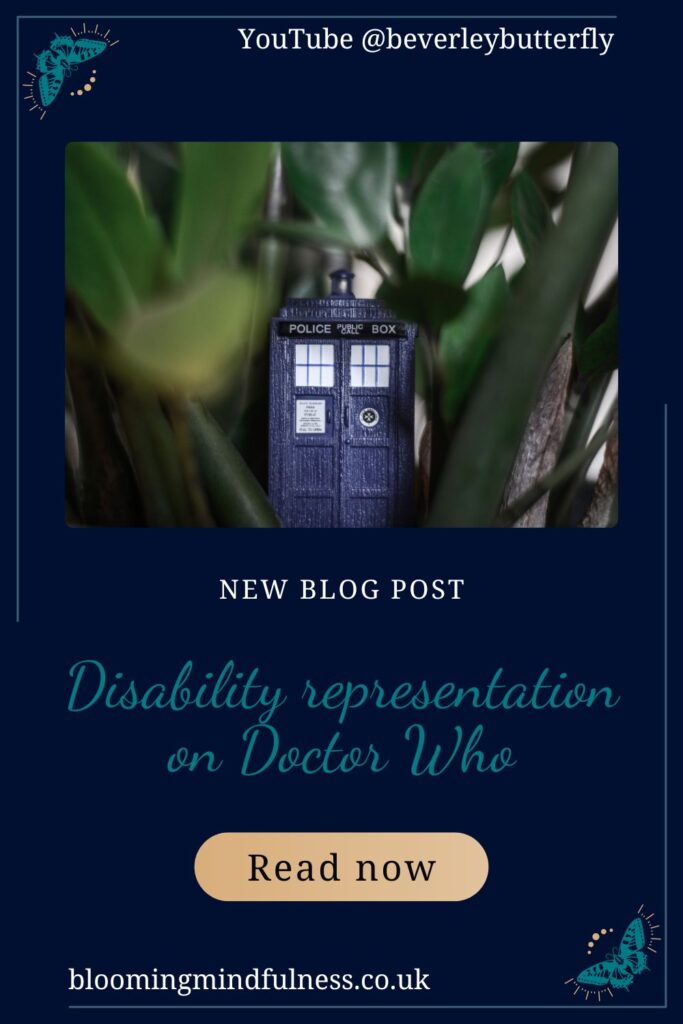
Disability representation on Doctor Who
We all want to see ourselves represented on TV and in movies, but often we are disappointed, until we saw the disability representation on Doctor Who let’s chat about it.

Image Description: a toy TARDIS is seen nestled in amongst the leaves of a plant
I have been a fan of Doctor Who since I was a child, my first Doctor was played by Peter Davison, and though I didn’t watch all the seasons that changed when it was restarted. The new version of Doctor Who is amazing and includes some of my favourite characters, and so I want to say I was already a fan.
However, the show has not always represented the disabled community well, they have often had them played by able bodied actors or seen as evil. You can read more about this in an amazing article from Digital Spy about where they have gone wrong in the past.
But those failings have been seen so many times over in TV and film, with disabled actors who have lived experience with the illnesses passed over for able bodied actors. This leaves so many actors who could bring so much to a role left out and not given a chance which is such a shame.
For me it is the trope of the person being cured, I remember when Felicity Smoak was injured in a fight on the show Arrow. She became a paraplegic, but the actress was not, and shortly after an ‘implantable bio-stimulant’ was invented and she could walk and fight just as before. Her being disabled was not mentioned again.
I do want to quickly give a shout-out to my favourite disabled soldier, Bucky Barnes, who has one arm, and PTSD from being taken during the war. We saw over movies and a TV show that he came to make peace with his past, however, though I love the actor Sebastian Stan, he is not disabled, and I wonder if they could have used an actor with a missing limb for the role.
However, most of all I want to talk about how this time disability representation on Doctor Who was done right in the latest series.
Yes, the incredible actress and activist Ruth Madeley took on the role of Shirley Bingham and I honestly cheered on the amazing-ness of the character. I mean she is part of UNIT, a group of soldiers who protect the Earth alongside the Doctor, and her being disabled doesn’t stop her doing this.
What I love the most is that this role was not written as disabled, Ruth auditioned and when she won the role because of her talent, it was reframed for her. We saw this on Stranger Things with Gaten Matarazzo who played Dustin Henderson and I would love to see it more.
Yes, it is incredible when a role is written for someone who is disabled, or black, or Asian and a person from that minority gets the role. But I wish we lived in a world where actors get roles, they are talented and right for no matter their colour, culture or if they are disabled…maybe one day!
The fact is that 24% of the UK population was shown in the DWP family resources survey to have a disability, which is 160 million people! We are the biggest minority in the world and disability can not only be born with but can come from illness or injury to anyone from any culture or background.
So, it boggles my brain when we are only now seeing this kind of representation on TV, when it means so much to us. I am not lazy, nor am I wanting to be disabled, I have often told my story on this blog, yet our government is trying to force disabled people into work…and we don’t even have a minister for disability right now!
Representation like we saw on Doctor Who shows that if the world is made more accessible (the TARDIS now has a ramp!!!) then we can be more productive in society. If you watch Shirley on Doctor Who she shows this because she is left behind by fellow UNIT officers when there are stairs and no lift!
As disabled people we see this all the time, parking spaces taken by able bodied people, drop curbs blocked if they are there at all! Public buses and trains made inaccessible because there are no lifts or people take up disabled spaces with pushchairs or luggage.
But when we see a character like Shirley Bingham, it gives us hope that able bodied people will see that we are just humans too. It gives us hope that the opinions of the public and the governments will change, and we will stop being treated badly.
There would be so many more of us able to work, if accommodations and real change happened, like happened on the show. The TARDIS changed so she could go with him if she wanted, and her wheelchair was fitted with amazing weapons so she could do her job alongside her co-workers.
If you have not yet seen the latest series of Doctor Who, maybe you never watch it, please check out The Star Beast, and The Giggle. Also, lets show support for the actress who was so good they obviously listened to her and bought so many inside jokes we disabled people deal with to the role.
Disability representation on Doctor Who and Stranger Things, shows that it can be done, we can incorporate disability into a show or film. I really hope the positive reactions I have seen for her will inspire other creators to do the same.
Thank you xx





One Comment
Kaz
I would like to see more disability representation in films and TV. I haven’t seen the recent series of Dr Who yet, am saving it for Winter Solstice